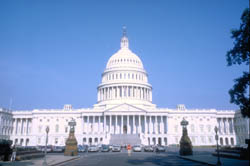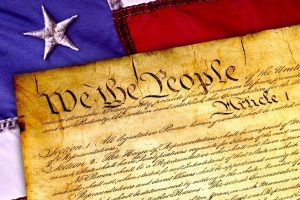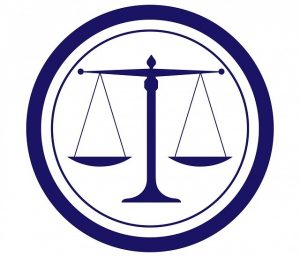As we look back on the insurrection at our nation’s Capitol on January 6, 2021, we must take stock not only of the tragic and deadly results of that day – and the bravery of law enforcement officials who protected the building and the lawmakers assembled to affirm the legitimate election of Joe Biden to be President. We must also assess some of the many things that apparently went wrong that day and figure out how to prevent those problems from ever happening again.  While a wide array of fixes can take place by us individuals, by the mainstream media, by for-profit corporations and by powerful social media, it is crucial that our national lawmakers also take significant action. Here we will examine some of the legislation that has been proposed by our elected officials at the national level (mostly Democrats) that is resulting from the January 6 House Select Committee (which, of course, was put in place almost exclusively by Democrats in July 2021).
While a wide array of fixes can take place by us individuals, by the mainstream media, by for-profit corporations and by powerful social media, it is crucial that our national lawmakers also take significant action. Here we will examine some of the legislation that has been proposed by our elected officials at the national level (mostly Democrats) that is resulting from the January 6 House Select Committee (which, of course, was put in place almost exclusively by Democrats in July 2021).
Our democracy is extremely fragile: if it were not for the courageous actions of certain leaders in Washington that day, by courts throughout our nation that threw out or ruled against all of the spurious claims of fraud by the twice-impeached ex-President Donald Trump and his supporters, and by the brave steadfastness of local officials (such as Georgia Secretary of State Brad Raffensperger), we could well have lost our democracy last January 6: there might well have been a successful coup that kept the loser of the 2020 election – Trump – in office for another term.
Therefore, it is essential that our national legislators find ways to “plug the holes” in our system.
Intelligence-gathering
The Co-Chair of the January 6 House Select Committee, Bennie Thompson (D-MS), explained that the committee “will recommend new intelligence-gathering legislation,” since there were significant communications and intelligence failures in the lead-up to the insurrection. Thompson stated that one initiative is “the coordination of resources to protect the Capitol.” This has indeed already been addressed: “the mayor of the District of Columbia can access the Guard right now,” which was not possible before.
Thompson continued, “[W]e were not apprised that something would happen [that day]. But, for the most part, it was the worst kept secret in America that people were coming to Washington, and the potential for coordination and what we saw was there.”
Tightening the Process of Certifying a Presidential Election
According to CNN, the January 6 committee is working on potential legislation that would “tighten the process of certifying a presidential election.”  The bill, in the early stages of drafting, would potentially craft “more specific instructions for when Congress can overturn a state’s slate of electors, and more clearly define the role the vice president plays in counting the votes.” Trump and his allies attempted to pressure former Vice President Mike Pence to block President Biden’s legitimate election win.
The bill, in the early stages of drafting, would potentially craft “more specific instructions for when Congress can overturn a state’s slate of electors, and more clearly define the role the vice president plays in counting the votes.” Trump and his allies attempted to pressure former Vice President Mike Pence to block President Biden’s legitimate election win.
This bill would focus on the 1887 Electoral Count Act and the memo that had been drafted by right-wing lawyer John Eastman. According to CNN, Eastman’s memo “laid out a six-step plan for how Pence could have certified the election in favor of Trump,” arguing that the Electoral Count Act itself was unconstitutional. (Fortunately, Pence obtained advice from former VP Dan Quayle, however unlikely a resource, that provided him with the truth of the matter – Pence had no option except to do his job and certify Biden’s win.) The proposed legislation would make it clear that no VP is granted the power to overturn the will of the people with a different result.
Security Funding
In May, the House passed a significant security funding bill as a result of the January 6 insurrection.  The legislation is stalled, however, in the Senate. Among other comments, Senator Mitch McConnell (R-KY) voiced objections, saying, “We’re not sure what to spend the money on yet. I think we are pushing the pause button here.”
The legislation is stalled, however, in the Senate. Among other comments, Senator Mitch McConnell (R-KY) voiced objections, saying, “We’re not sure what to spend the money on yet. I think we are pushing the pause button here.”
According to a CNN report and a bill summary released by the House Appropriations Committee, the elements in the bill include the following:
- $250 million for Capitol grounds security, which could be used for physical infrastructure including “retractable, or ‘pop-in’ fencing, and security sensors.”
- $162.7 million to harden security safeguards for windows and doors at the Capitol building as well as at House and Senate office buildings.
- $7.4 million to increase security for lawmakers, including threat assessments, and $10.6 million toward security measures and the installation of camera systems in district offices for members.
- $8.6 million to the Capitol police force, for body cameras, $6.8 million for specialized training and $2.6 million “to procure basic riot control equipment to outfit all officers with ballistic helmets, batons, and body shields.”
- $200 million “to create a dedicated Quick Reaction Force to augment the Capitol Police.”
- Funding to help deal with the prosecution of individuals who took part in the January 6 attack.
- $39.5 million “to process the hundreds of prosecutions of perpetrators of the January 6 insurrection, including $34 million for United States Attorneys;
 $3.8 million for the Criminal Division of the Department of Justice; and $1.7 million for the National Security Division of the Department of Justice.”
$3.8 million for the Criminal Division of the Department of Justice; and $1.7 million for the National Security Division of the Department of Justice.”
As with so many things in our recent past, the House has acted and moved toward solving some of our nation’s most egregious problems, while the Senate hems and haws…
Conclusion
According to some members of the January 6 House Select Committee, there may soon be televised hearings on their work, as well as reports on their very important findings. The committee’s work, and even existence, is up against a timeline in the political world: if Republicans win in the midterms later this year and take back the majority in the House, the January 6 committee could be disbanded. We can hope that more legislation will result from the committee’s work on a number of related issues and that it passes not only in the House but in the Senate as well. Our very survival as a democratic republic could depend on strong legislative action.
